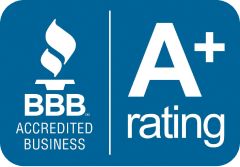
How to determine if you need life insurance, and if so, what type?
Life Insurance Options: The first step when you start shopping for life insurance, although this may seem like an obvious question, is to ask if this is something you really need. About 60% of people in the US have some form of insurance coverage.1
Below are some of the questions to ask:
- Is there anyone financially dependent on you?
- Do you have any debt?
- Do you have enough cash to pay for the taxes and fees on an estate?
- Do you have enough cash to pay for final expenses, such as the cost of funeral, etc?
If the answer to any of these questions is yes, you likely will need some form of life insurance. 1 in 5 of those insured in the US believe their current coverage is not enough.2
Find Medicare Plans in 3 Easy Steps
We can help find the right Medicare plans for you today
Let’s explore some options…
| Term | Whole | Universal | |
| Time Period | Specific time period, i.e., length of a mortgage. Can be 10, 20, or 30 years | Continuous coverage for the duration of life | Continuous coverage for the duration of life |
| Premiums | Fixed, most affordable | Fixed, the median cost | Flexible, most expensive |
| Benefit | Fixed | Fixed | Fixed or increasing |
| Cash Value | Does not generate cash value | Generates cash value | Generates cash value |
| Ability to Borrow | No | Yes | Yes |
Now that we know the basics of what is available, how do you determine which option is right for you? First, you can visit Abbysconsulting.net/lifeinsurance and use our Product Selection Quiz, which asks questions to determine what coverage you need. Some of these include budget, coverage term and total benefit needed, investment options, etc.
When you are ready, you can call us and ask for help choosing a company and a plan. We will always be on the lookout for the right plan at the right price!
FAQs "Life Insurance Options"
What are the 3 main types of life insurance?
Permanent life insurance is divided into three categories: whole, universal, and variable.
What are some options for life insurance?
Different Types of Life Insurance:
- Term life insurance.
- Whole life insurance.
- Universal life insurance.
- Variable life insurance.
- Burial insurance/funeral insurance.
- Survivorship life
- insurance/joint life insurance.
- Mortgage life insurance.
- Credit life insurance.
Find Medicare Plans in 3 Easy Steps
We can help find the right Medicare plans for you today
Which type of life insurance is the better option?
Most individuals prefer term life insurance because it is more economical, but whole life insurance makes sense for people who require lifelong coverage or who want insurance with a cash value.
Which is better term life or whole life insurance?
Term insurance protects you for a set number of years, whereas whole life insurance protects you for the rest of your life—as long as you keep up with the premium payments. Whole life premiums can be five to fifteen times higher than term plans with the same death benefit, thus they may not be a viable alternative for consumers on a tight budget.
What are five things not covered by life insurance?
- Family health history.
- Medical conditions.
- Alcohol and drug use.
- Risky activities.
- Travel plans.
What are 4 types of whole life policies?
- The Four Types of Whole Life Interest-Sensitive Universal. Universal life insurance is sometimes regarded as the most adaptable of all the entire life insurance options.
- Excess Interest….
- Single-Premium….
- Current Assumption.
What are the four types of insurance that most people need?
The four types of insurance that you must have, according to most experts, are life, health, long-term disability, and auto insurance.
What type of life insurance builds cash value?
In addition to cash value accumulation, cash-value life insurance, commonly known as perpetual life insurance, offers a death benefit. Term life insurance, unlike a variable, whole, and universal life insurance, does not have a built-in cash value.
Are life insurance payouts taxed?
Answer: Life insurance benefits received as a beneficiary owing to the insured person’s death are generally not includable in gross income and are not required to be reported. Any interest you receive, on the other hand, is taxable and must be reported as interest received.
At what age should you stop life insurance?
Once you reach your 60s or 70s, you may no longer require life insurance. If you’re on a fixed income, saving money could help you stretch your budget a little farther. Before making any important decisions, talk to an insurance agent or a financial expert about your needs.








